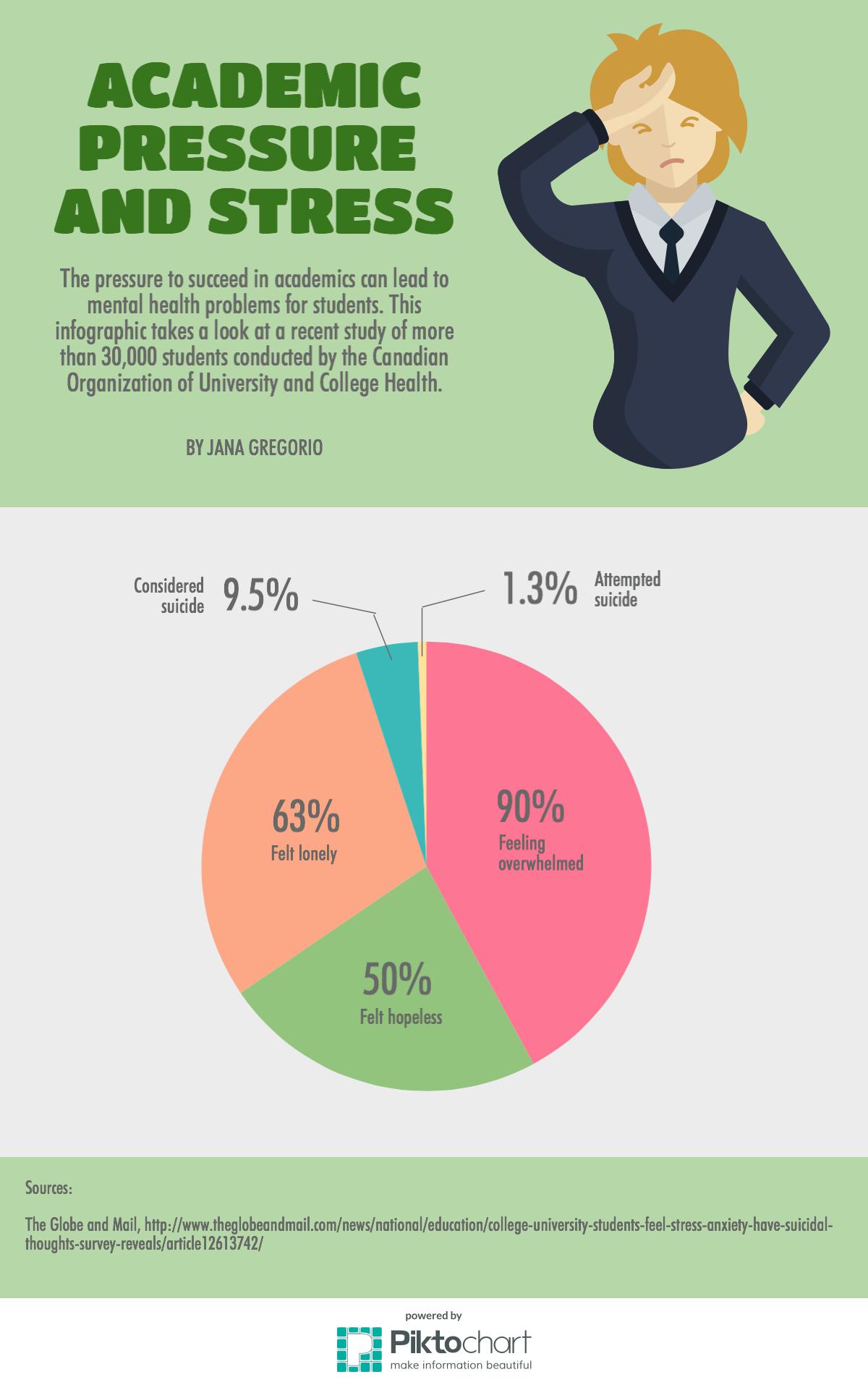BY JANA GREGORIO
The stresses of school finally caught up to Brennan Woods.
The 26-year-old Electrical Engineering student at Mohawk College entered a classroom he thought was his lab. When he realized he was in the wrong class, the situation triggered an anxiety attack and he spent two months in the hospital.
“[The pressure to succeed] is horrible, I was hospitalized. I was really hard on myself to get 80s and 90s,” he said.
When Woods got out, he tried to catch up to his studies. He just passed, got his diploma, and went straight back to school to start another program. But he relapsed soon after and suffered another anxiety attack. He had to take a year off in the middle of the semester.
The pressure of being a Dean’s Honour student made Woods anxious, depressed, and at one point, suicidal.
“In my final semester, I wanted to keep my average. It was stressful, staying on top, having to prove to keep the standard,” he said.
Woods is not alone in his struggle for academic perfection.
According to The Globe and Mail, a survey conducted by the Canadian Organization of University and College Health found that Canadian post-secondary students often feel stressed, overwhelmed and suicidal, with some of the findings relating to the relationship between stress levels and academics.
The study reports that almost 90 per cent of students said they felt overwhelmed by everything they had to do, more than 50 per cent said they felt hopeless, 63 per cent said they felt lonely, 9.5 per cent seriously considered suicide and 1.3 per cent said they had attempted it.
Alyse Nishimura, a counsellor at Sheridan College, said the pressures of school could create a lot of added stress and can result in mental health problems.
“Often when people are stressed, they have increased worry. Persistent increased worry can lead to increase in anxiety,” she said. “Anxiety and depression often co-occur if the anxiety lasts for a long time and it’s untreated.”
MORE RELATED TO THIS STORY:
- The President’s Challenge is back with a focus on wellness
- Paws Your Stress: pups share love with students
- End-of-year student stress
Students may turn to unhealthy coping strategies to deal with stress, like alcohol use, drug use or sex. When they depend on these strategies, it can lead to addiction, said Nishimura.
There are many reasons why students put so much pressure on themselves.
Second-year Advertising and Marketing student Victoria Pacey, 19, said there are external pressures, like family, that can cause this mentality.
“It feels like you have to do well. You’re forced to do well. If your parents pay for school, you don’t want to disappoint them. You want to make them proud,” she said.
Sometimes, the stress can come from the programs students are taking. Certain programs require critiques from other students and faculty members which means a lot of comparing, said Nishimura.
A recent The New York Times article reported that “faulty comparisons” could have negative consequences when students feel shame, or a sense that they’re “defective”.
“When you get a bad grade and you start to feel like you’re not good enough, you can’t do well, but you tried really hard, you feel like, ‘That’s it,’ and you start to lack self-confidence,” said Pacey.
One of Woods’ biggest fears was failure, failing to live up to the expectations of being an honours student.
He eventually learned how to recognize the triggers for his anxiety and knows when to ease up.
Knowing the first signs of excessive stress can help students become aware of their body’s limits.
“[The first signs are] lack of consistent sleeping patterns, and just finding it generally difficult to cope with the stressors that they’re facing. They may start to feel physical symptoms like regular headaches or stomach aches,” said Nishimura.
She advises students to take time out of their schedule to do activities they enjoy. Taking 20 minutes to go for a walk, for example, may seem counterintuitive, but it helps rejuvenate them, she said.
Nishimura also recommends that students talk with a mentor, professor, classmates or family members about how they’re feeling, and practice meditation.
If those don’t work, students can always come in and see a counsellor.
“You need to be No. 1 and do what you need to do to help you reduce your stress, and if you don’t know what that is, then talk to someone who might be able to help,” said Nishimura.
Through his experience with anxiety and trying to live up to expectations, Woods realized that school’s not everything.
“I learned not to take it too seriously,” he said. “If you fail, you can always try again.”

